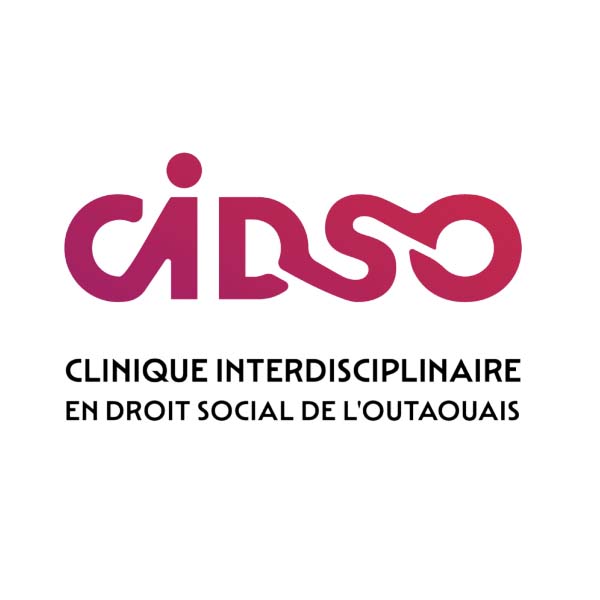The issues of homelessness and social marginalization are becoming more and more pressing in Quebec. Several factors contribute to this such as the COVID-19 pandemic or the housing crisis.
The Clinique interdisciplinaire en Droit social de l’Outaouais (CIDSO) was founded in 2020 by a multidisciplinary team of professors from the University of Ottawa and the Université du Québec en Outaouais. As a clinic affiliated with two academic institutions, one of the priorities is to translate research data into practice, while addressing the real needs of those primarily affected. CIDSO addresses both legal and non-legal issues affecting marginalized populations such as access to justice, access to housing, mental health issues, youth protection and many others. The CIDSO fosters a culture of learning and interdisciplinary work by welcoming students from the Faculty of Law, Civil Law Section and the Schools of Social Work and Nursing of the University of Ottawa, as well as the Department of Nursing of the Université du Québec en Outaouais. Since January 2023, the clinic also welcomes paralegal students from the Cégep de l’Outaouais. This interdisciplinary model, including paralegals, is unique in Quebec.
After a year and a half of operation, the CIDSO is already well established in the Gatineau community. It offers concrete, global and coherent solutions to people living on the margins of society in the exercise of their rights.
Some examples of services offered by the CIDSO:
Individual consultations to provide legal information and assistance in writing letters, completing forms, applying for welfare benefits and legal aid services, etc.
Social accompaniment services in court or in administrative, health and housing matters.
Preparing clients for their hearings or interactions with government services, for example by explaining the process.
CIDSO’s activities take place at the Hull Soup Kitchen, 297 des Allumettières Boulevard in Gatineau, Québec, every Wednesday, with or without appointment.

